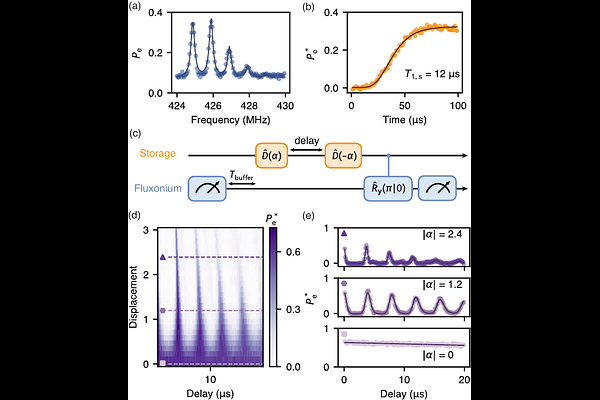Fluxonium as a control qubit for bosonic quantum information

Fluxonium as a control qubit for bosonic quantum information
Ke Nie, J. Nofear Bradford, Supriya Mandal, Aayam Bista, Wolfgang Pfaff, Angela Kou
AbstractBosonic codes in superconducting resonators are a hardware-efficient avenue for quantum error correction and can harness the favorable error hierarchies provided by long-lived cavities compared to typical superconducting qubits. These benefits can be negated, however, by the necessary coupling to an ancillary control qubit, which often induces highly detrimental effects such as excess decoherence and undesired nonlinearities. It is thus an important question whether a qubit-cavity coupling can be realized that avoids such effects. Here, we investigate the fluxonium as control qubit, motivated by its long lifetime and controllability of Hamiltonian parameters that suggest an avenue toward controlled elimination of undesired nonlinearities. In a proof-of-concept experiment we use the fluxonium to measure the coherence properties of a storage resonator and demonstrate the predictability of the cavity's inherited nonlinearities from the fluxonium. We demonstrate universal control by preparing and characterizing resonator Fock states and their superpositions using selective number-dependent arbitrary phase gates. The fidelities of state preparation and tomography are accounted for by incoherent resonator decay errors in our planar prototype device. Finally, we predict that the fluxonium can achieve beneficial cavity-coupling regimes compared to the transmon, with the potential to eliminate undesirable cavity nonlinearities. These results demonstrate the potential of the fluxonium as a high-performance bosonic control qubit for superconducting cavities.